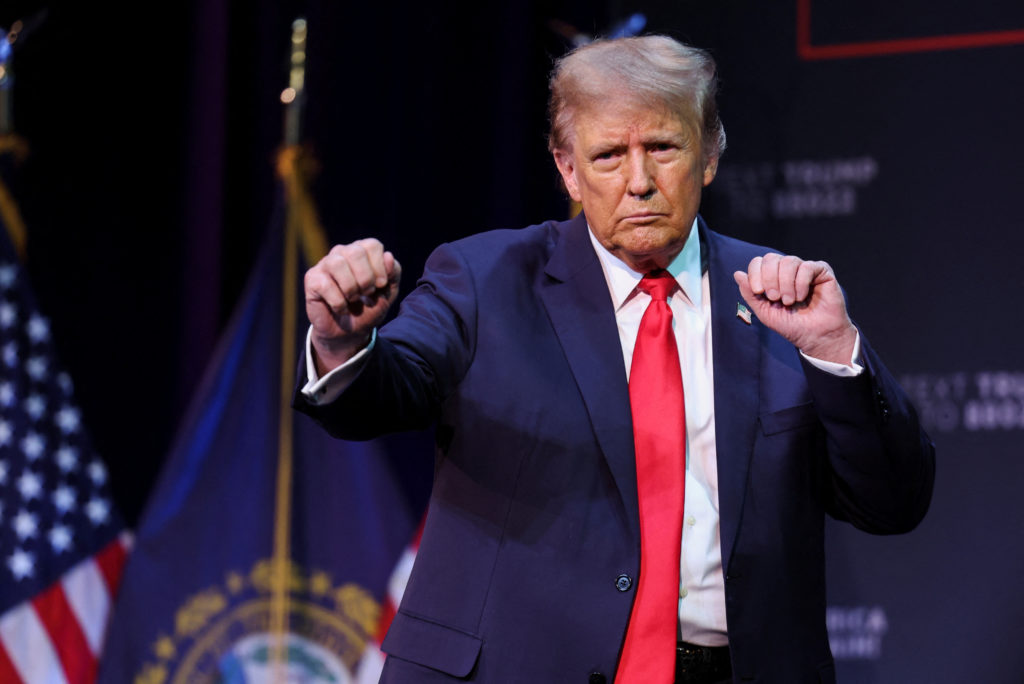Big Tech and the 2024 Biden vs. Trump Election: Navigating the Complex Relationship
In the realm of political campaigns, Big Tech has emerged as both a powerful ally and a contentious target. Despite the rhetoric and criticism often directed towards tech giants in Washington, presidential campaigns have consistently funneled significant amounts of money into Silicon Valley for digital advertising, underscoring the inescapable role these companies play in modern political discourse.
| Company | Stock Symbol | Mentioned in Article |
|---|---|---|
| Facebook (Meta) | META | Trump campaign advertising on Facebook; Biden administration engaged in legal battles with Meta (Facebook). |
| Amazon | AMZN | Both Trump and Biden campaigns patronized Amazon for various services and purchases. |
| GOOG | Biden administration engaged in legal battles against Google. | |
| Apple | AAPL | Biden campaign spent a significant amount on Apple products. |
| Uber | UBER | Trump campaign expensed Uber rides frequently. |
| Lyft | LYFT | Both campaigns utilized Lyft for ride-sharing services. |
| Twitter (formerly X) | Trump campaign paid for premium subscriptions to Elon Musk’s company, which may refer to Twitter. |
The 2023 Federal Election Commission records provide a comprehensive overview of how campaign funds were allocated, revealing millions of dollars directed towards digital advertising, a cornerstone of voter outreach strategies. This spending trend sheds light on the symbiotic relationship between political campaigns and Big Tech, where reliance on tech services is as ubiquitous for campaign operators as it is for ordinary Americans in their day-to-day lives.
Despite the public criticisms and policy disputes surrounding Big Tech, both likely nominees for the 2024 presidential election, President Joe Biden and former President Donald Trump, have maintained a complex relationship with these tech giants. Trump, known for sporadically raising antitrust concerns and launching his own social media platform, Truth Social, continues to utilize platforms like Facebook (now Meta) for advertising. Similarly, President Biden, amidst ongoing legal battles against tech companies, regularly patronizes these same firms for campaign advertising and other services.
The Expensive World of Digital Advertising: Digital advertising represents a significant portion of campaign spending, with both the Biden and Trump campaigns collectively spending at least $30 million in 2023. While traditional advertising channels like linear television still receive a share of campaign funds, a substantial amount is directed towards platforms like Facebook and Google, reflecting the increasing importance of digital outreach strategies in modern political campaigns.
Challenges in Tracking Spending: Tracking the exact allocation of advertising budgets to Big Tech platforms poses challenges, as much of the money flows through third-party vendors. Despite this, it’s evident that a substantial portion of campaign spending finds its way to companies like Facebook and Google, highlighting their dominance in the digital advertising landscape.
Beyond Advertising: Diverse Tech Spending: Campaign spending extends beyond advertising to a range of tech services and products. Both campaigns patronized Amazon for various purposes, despite their respective clashes with the tech giant. Biden’s team utilized Amazon Web Services for website hosting, while Trump’s campaign spent on office supplies through Amazon. Similarly, expenditures on Apple products and ride-sharing services like Uber and Lyft provide insight into the distinct preferences and cultures of each campaign.
The Complex Relationship: The paradoxical nature of the relationship between political campaigns and Big Tech is apparent in the spending patterns of both Biden and Trump campaigns. Despite criticisms and legal battles, both campaigns rely heavily on tech services for advertising and operational needs. This dynamic underscores the intertwined nature of politics and technology in the digital age, where navigating the complexities of this relationship has become an integral aspect of modern campaigning.
As the 2024 election season unfolds, the role of Big Tech in shaping political discourse and campaign strategies will continue to evolve. While debates over regulation and antitrust loom large, the pragmatic reality is that tech giants remain indispensable allies for political campaigns seeking to reach and engage voters in an increasingly digital world.
Shayne Heffernan









